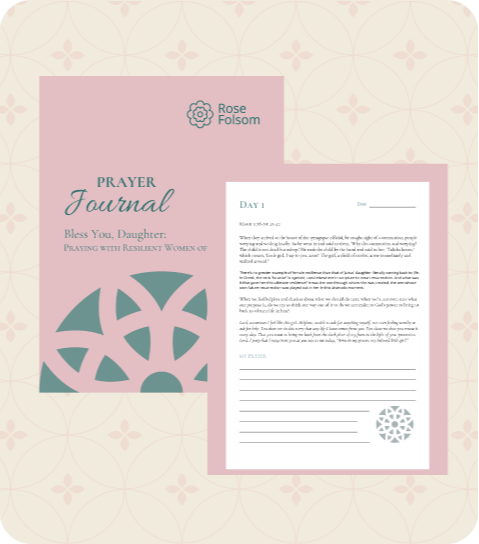When Prayer Feels Empty & Success Isn’t Enough
Transform your anxiety into God’s peace—without sacrificing your goals.

Hi, I’m
Are you feeling overwhelmed trying to balance it all while longing for a deeper connection with God and yourself? As a Catholic coach, I help ambitious women move from spiritual uncertainty to peace and purpose through Christ-centered coaching.
Together we’ll:
- Cultivate a vibrant connection with God.
- Align your success with God's purpose.
- Release perfectionism and find peace in God’s love.
Are You Struggling With:

Feeling disconnected from God, despite your prayers?
Despite your prayers and parish involvement, you're struggling to feel God's presence, leaving you unsure of what you're doing wrong.

Exhaustion from trying to do it all perfectly?
You're drained from trying to be the perfect mother, professional, wife, and Catholic, and feel like you never measure up.

Anxiety about your life’s direction and decisions?
Though outwardly successful, you question if you're following God's will, and fear making the wrong decisions keeps you up at night.
Imagine Instead If You...
- Woke up with a sense of peace, and knew that you're exactly where God wants you to be.
- Had a genuine, heartfelt relationship with God that guides your daily decisions.
- Found joy in your prayer life instead of checking it off your to-do list.
- Built meaningful connections with other Catholic women who understood your journey.
- Led with the confidence that your worth comes from God, not your accomplishments.
About Me

As a former White House office director and entrepreneur, I’ve walked the tightrope between professional ambition and spiritual emptiness. I know exactly how it feels to appear successful while secretly questioning:
“Is this all there is? Does God even see me in this grind?”
Picture me in a fetal position on my office floor one night. I was burned out and didn’t even see it coming. My priorities suddenly seemed meaningless. I was helpless and clueless. And yes, I had been disconnected from my faith for quite some time.
I had overlooked a radical truth: True leadership isn’t about perfection— it’s about surrendering to God’s strength in our weakness. I help people do that with my 5-step “Success Over Stress” process developed over many years making my way back to God.
Through my own healing journey and helping over 9,000 Catholics, I can show you that miraculous transformation happens when you:
- Swap anxiety for unshakable peace grounded in your identity as God’s daughter
- Replace exhaustion with resilient energy from a thriving prayer life
- Trade imposter syndrome for holy confidence rooted in God’s purpose for you
Your career success and spiritual growth aren’t opposing forces—they’re meant to fuel each other.
Ready to Banish Your Anxiety and Reclaim Your Peace?
Book Your Free Clarity Session
Stop wrestling with spiritual uncertainty alone. As someone who has guided thousands of Catholic women from restless to resilient, I'd be honored to help illuminate your path forward.
During this intimate conversation, you’ll come away with your Next Best Step to live your life with the inner peace you were born for and that you deserve.
This isn't just another consultation—it's a sacred space to be seen and heard and receive guided wisdom for your journey ahead.
Limited spots available each week to ensure personal attention.


Testimonials
Feeling Disconnected from God?
Download My Free Prayer Journal and Move from Whispered Doubts to Confident Faith.

What You’ll Get:
- 31 days of scripture-based prayer guidance
- Reflective journaling prompts
- Personal prayer templates
- Biblical woman character studies
- Daily surrender practices






